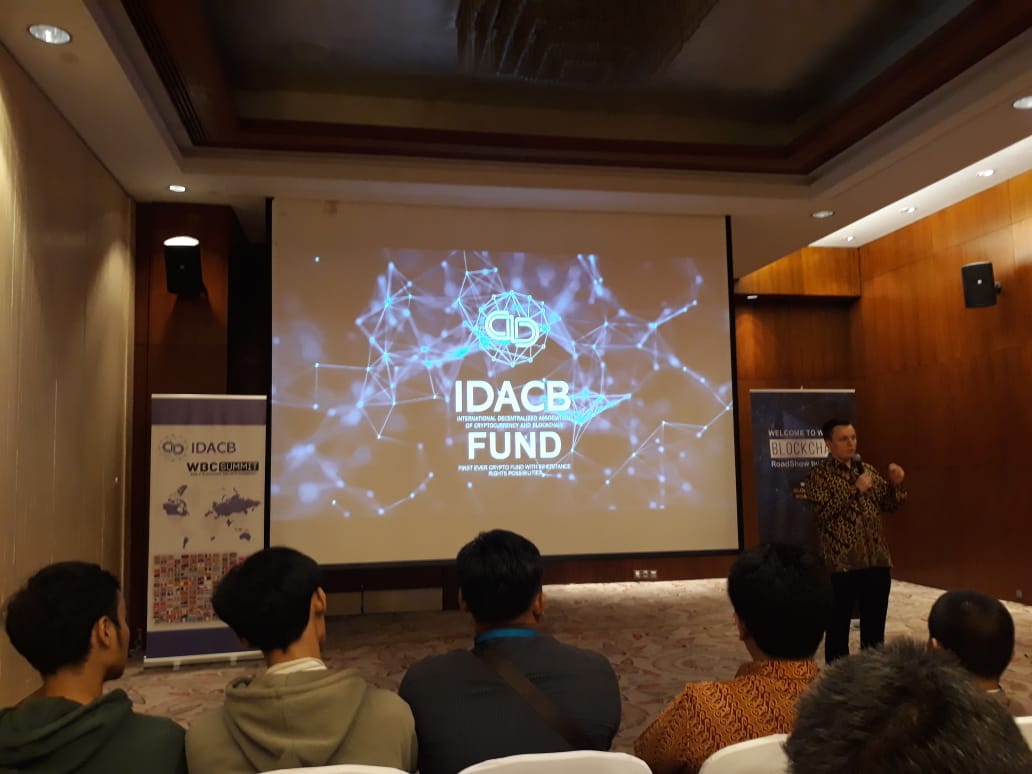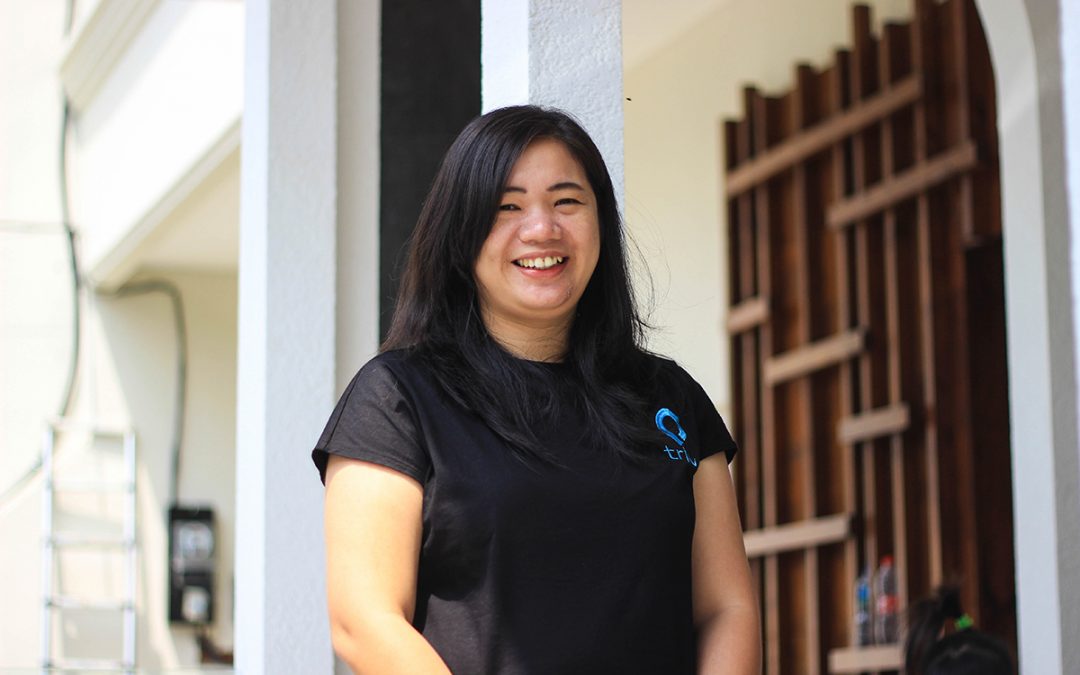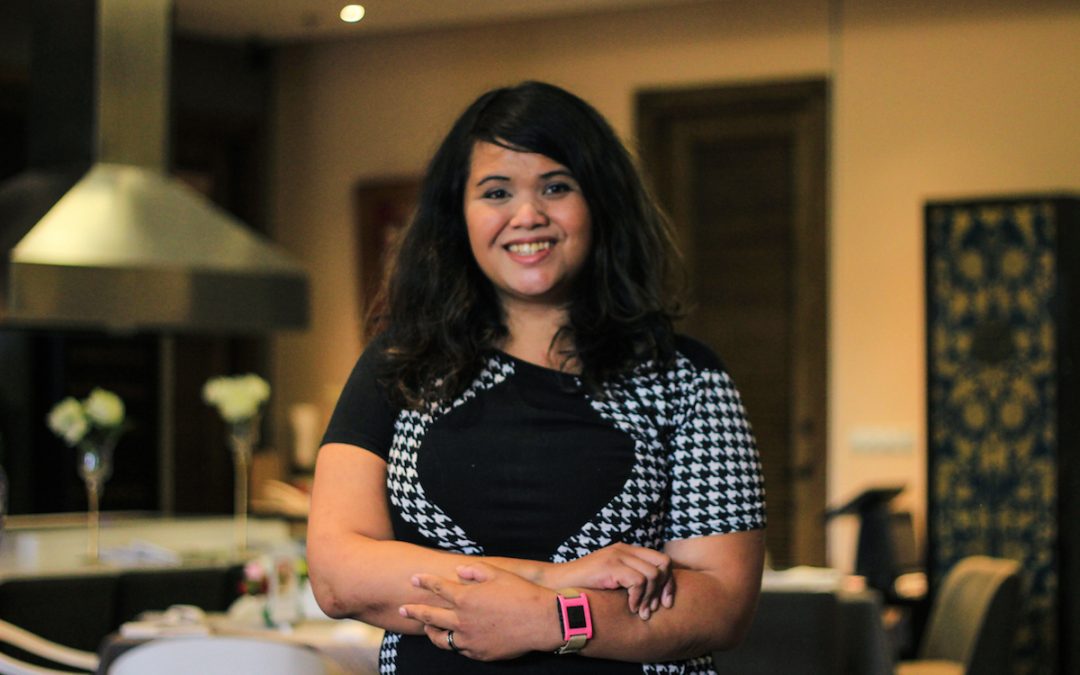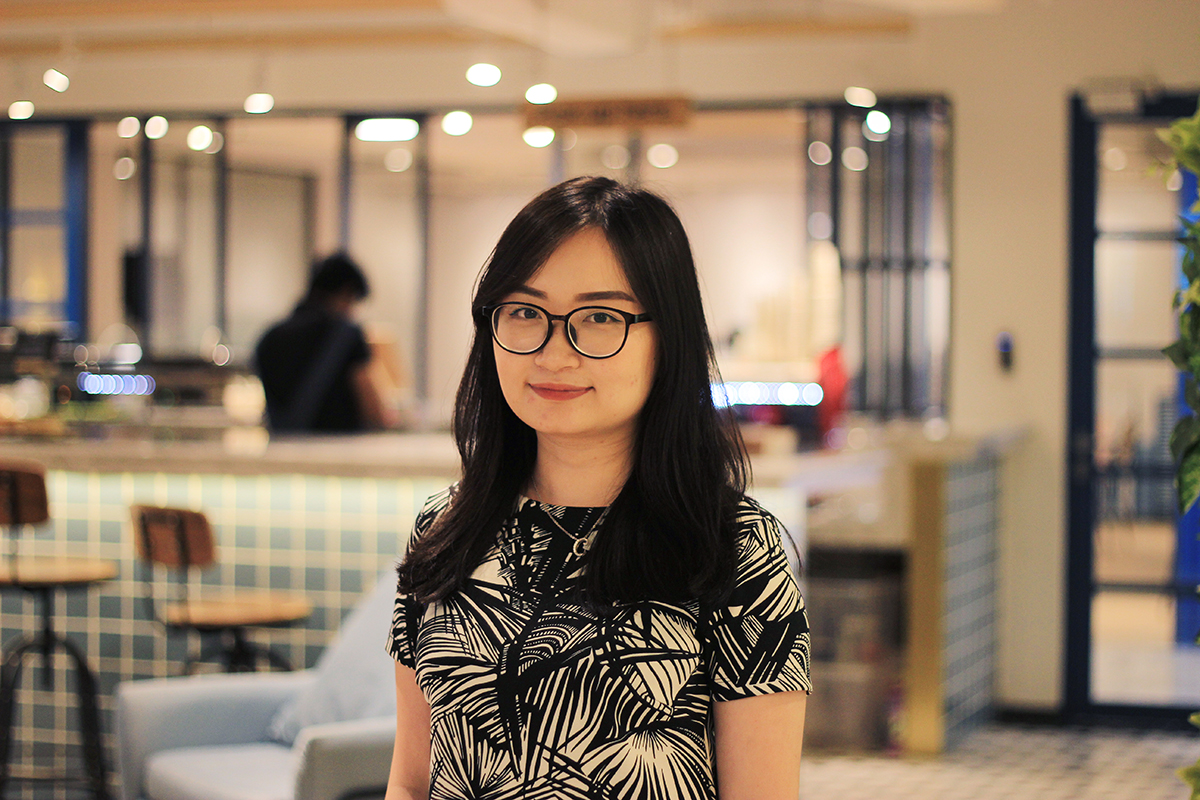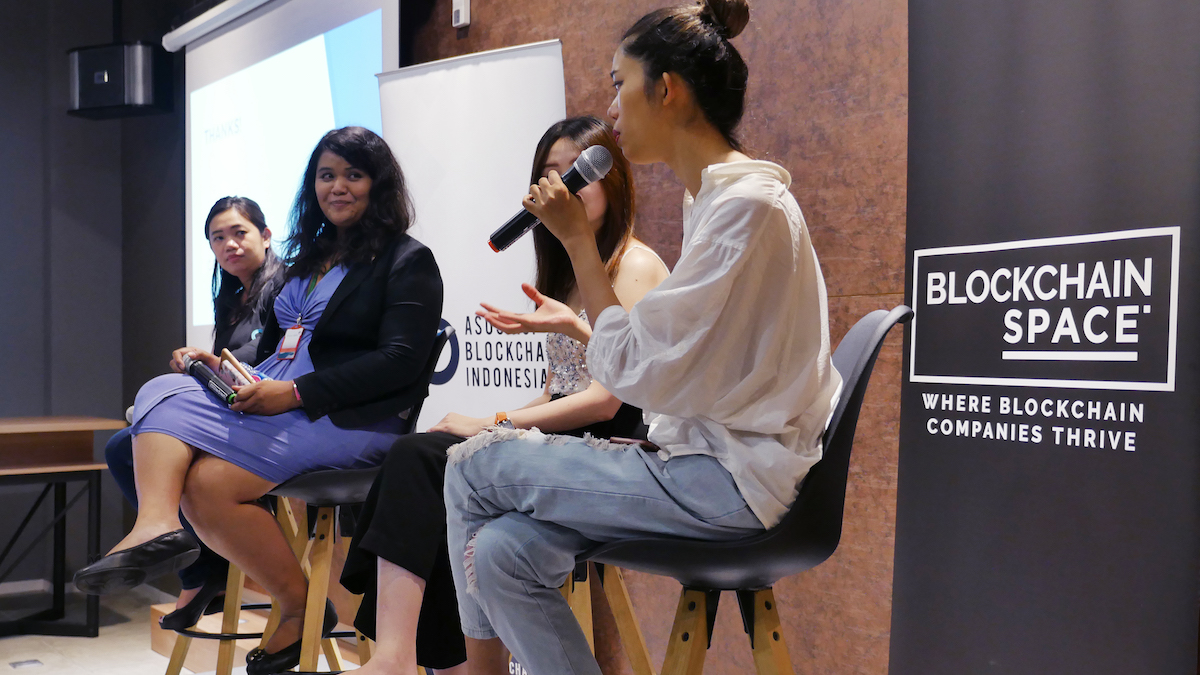Tell us a bit about yourself.
Hi, I’m Pandu Sastrowardoyo and I’m one of the co-founders as well as spokesperson for the Board of Directors of Blockchain Zoo. Blockchain Zoo is a consulting company based on the blockchain. We try to find out what companies want to do with the blockchain and we try to matchmake their business models, the business values they seek, and the kinds of blockchain technologies that fit them. We focus on being really agnostic; we don’t just focus on one technology, but multiple technologies, which is actually very rare in the blockchain consulting industry right now.
We’ve been here for about a year. But the people that founded Blockchain Zoo have been in the blockchain ecosystem for many years. A lot of us actually started nine years ago; blockchain is nine years old, so we have a combined experience in blockchain that is very unique. That’s how we are able to execute in such an agnostic fashion. Our experience is in a lot of our technologies that for others have just appeared; we’ve been in those technologies since the very beginning.
How did you get to where you are today?
I started as an engineer — no, rewind. I actually started as a programmer when I was six years old. I learned to program when I was six. My dad really loved programming. He taught me to program. When it came time to choose a career, I chose to become an environmental engineer. This is very geeky, but what I did was I created expert systems, which are basically simple artificial intelligence programs back when I was in college. These expert systems are basically being used to create environmental impact assessment reports, which are usually created by humans.
Funnily enough, when I graduated I wasn’t actually accepted to be a programmer. I did try to apply, but somehow the only companies that hired me were marketing companies and consulting companies. I was accepted into Procter and Gamble for marketing rather than being a programmer. In my spare time, though, I did a ton of work just playing with games that I created on my own, while being an assistant brand manager. I went on to work in several other companies, but always at night I programmed, because I liked computers so much.
One day, I decided that I needed to utilize my computing capabilities and my developer capabilities, just to break into something that is closer to what I want and what I have skills for. So I decided to try out for IBM. I got into IBM, and I can say without exaggeration that the best years of my life were actually spent within IBM. I rose through the ranks very quickly. I started as a sales specialist, then I became country leader for product. IBM basically always allocated me for new products, the products they’ve never sold before or never opened to market before. I found my calling, basically. I was in enterprise IT. How to find the proper way for systems to be able to help people in their daily lives, and how corporations can utilize systems to make it easy for them to get value. I was in charge of about six divisions when I was in IBM, and I’ve lead multiple countries for most of them.
At the end of the six years in IBM, I found out that most Enterprise IT companies’ strategy for addressing blockchain was not agnostic when focusing on blockchain itself – something I did not agree with. Most consulting companies focus on one technology, and pushes that technology everywhere. It’s like they have a hammer and everything is a nail. They have exactly one type of hammer that is being pushed to solve everything.
So, I contacted my old friends – a lot of other people on our website basically, and after discussions we basically decided to create Blockchain Zoo. The idea is that blockchain is a jungle, so let’s create a zoo. That’s basically how I helped co-found Blockchain Zoo. The funny thing about my background is, if I had gone the regular route and just became a developer, I probably wouldn’t have the marketing skill sets, the sales skill sets, probably not even the enterprise IT skill sets, so I’m actually quite grateful for the journey that I’ve been through.
What are the challenges you face first in the technology space, and second as a woman entrepreneur?
The challenge as a blockchain entrepreneur in general is that a lot of people just equate blockchain with cryptocurrencies. Everyday I receive messages asking me for trading advice. Which is not something that I do! I mean, I’m a terrible trader. If I tried to trade, I’d lose all of your money. (laughs) Now, that sounds funny, but there’s a less funny part of it. Cryptocurrencies in Indonesia is a gray area for the government. The government doesn’t like it too much, so if I get associated with cryptocurrencies, especially in Indonesia, that dilutes my brand. It actually dilutes my capability as well.
Second — this is what’s funny about blockchain as a technology compared to other technologies — the killer app already exists, and that’s cryptocurrency. But actually the killer app is not the best app. Let’s talk about artificial intelligence for a moment. What’s the killer app for AI? I think it’s personal assistants, and I think in a few years, everyone is going to agree with me that the personal assistant is what the AI killer app will be. Well, blockchain started as bitcoin. It started as an app, so now people cannot forget the killer app. It’s really hard to get out of your mind. Because that’s actually the top of your mind, of what can be done. However, we at Blockchain Zoo focus on something that is not the killer app, but other solutions on the blockchain which actually have a lot of business value. For instance, blockchain for the supply chain, blockchain for trade finance, all of these things which are not cryptocurrencies. All of these things are not threats to the banks; they’re actually tools for the banks. It does sound like an awareness thing, but it becomes very complicated because the media insists on focusing on the sexy part, which is people getting money from almost absolute zero from trading cryptocurrencies.
In terms of being a female in the technology space…you know what, let me tell you several stories. One of the stories actually has to do with a friend of mine who is a very, very good programmer and developer. Yet she’s had a lot of issues in the past. The Whatsapp groups where the developers hang out are all boys and she is not welcome inside the groups. She works for a company that is actually on the same level of IBM, and she experiences discrimination. The reason why she’s not in the group is that a guy said, “Oh, if you’re in the group you wouldn’t like it because there’s a lot of dirty jokes.” Which is dumb, right? These are groups filled with developers. It’s not a joke group. For the people who are in technical fields, this often happens. There are sort of like boys clubs that sprout up. And it is a bit difficult for women to come in. Not because of the skills, no, but because of the resistance of the existing technical workers, who are mostly men.
Now, for an entrepreneur, it depends on the level. Right now I don’t experience these discriminatory practices. At the beginning, of course, being a female leader in the tech space, not just in the blockchain space, there are things that are expected differently of you. If you’re a guy in the IT space, you’re basically there because you have technical knowledge and you have business acumen. If you are a woman, there are two scenarios (and this is true in Indonesia, I am not sure for other countries): business acumen, maybe, or you are good at relationships, with the bapak-bapak (older men), with the guys who basically make the decision. We’ve seen that a lot. I’ve seen a lot of female managers who are literally flirting to get deals. And that actually happens a lot in the IT world.
I actually hired someone from my partner back in IBM, and well, we were going to bulk up this new partner company. And I’ve asked them, “Okay, so what would you like to have in your sales team, your sales manager?” And they wanted to have a pretty girl. Literally, their wishlist, number one, is pretty girl. So that still happens, especially for the IT industry. That still happens a lot. When you’re at the director level, the chairman level, or Board of Directors level, that doesn’t get associated with you. But when you’re still a young sales manager and you’re a girl, the first question would be this. Like you could see the calculations in their minds, and they are calculating whether you’re here because you can talk with people, or you’re here because you can flirt with people. The calculus is still there.
Do you have any recommendations for how leadership or even everyday employees can start fixing that mindset?
This has to come from both genders, of course. Men especially, the technical guys, should try to make women feel more welcome. Women have a lot to add to the conversation. I’ve worked with both male and female developers, and they all have different thoughts to add. It’s not something cliche, like “women are better at user interface.” With the addition of women into the workforce, you get additional thoughts that you as a male might not have thought of. Simply more variety in terms of your thinking. When I see the construction of boys clubs within developer organizations, those are usually because of dirty jokes, because of people trying to have fun. But in terms of professionalism and basically to make people welcome, it may be best to discourage these so that you can have a very safe environment for everyone in the end.
I think there are two suggestions for women ourselves: if you’re a woman, you’re a technical person, and you really want to be a programmer, don’t be afraid of venturing inside the boys clubs — it doesn’t mean you have to be a boy or a tomboy even. Just be yourself, but show that from a merit perspective you have the capability. In the end, I think it’s all about capability. If you want to be more of a business manager or developer, I think it’s the same. There will be people looking at you sideways, especially in this industry, and that’s going to be true at least for the next few years. But just focus on the merit of the discussion, your business acumen, your ideas. Don’t let the guys push you to do just relationship-selling. Focus on the content. The content will set you free.
Can you speak more on blockchain’s unique positioning with women?
Other technologies are not inherently community focused. For example, AI has a community, but without a community the technology itself still works. Big data, yes of course there are communities sprouting around big data, but that is less about the technology itself than the gathering of the data. Now, blockchain – and especially the more public blockchain like ICO activities – even the development of new technologies are all created by communities. It is a way to make multiple people from competing interests work together as a group, as a whole. That requires a lot of community acumen. Which means the successful ICOs, the successful technologies of the blockchain, have both active technologies and active communities.
I’ve been saying this for awhile. Women are actually very good at the social aspects of technology, which until now was just social media. We are better social media users, we post more on social media, and we have an innate understanding of what creates a good community, whether its online or offline. Social media itself, have you ever heard of CAMS? Cloud analytics mobile social? About three or four years ago, it was decided that the next trends of IT was to be CAMS. Everyone was about to be working with social media; if you were in an office you’d be using something a lot like Facebook, within an enterprise. That never came to pass in enterprises, but it did come to pass in blockchain work. The way people work in blockchain — we don’t use emails. We use our own internal social media, like Telegram. It grew out of the importance of communities.
I think women in blockchain actually have a lot of potential that can be pushed. And Indonesia itself needs to be more open to this possibility. The women of Indonesia need to understand that this is a wonderful niche where women can make or break a new blockchain project. Whether the project succeeds or not could be determined by whether there’s women or not.
What’s something that you’re excited about in terms of Indonesia in the blockchain space?
I’m excited by the number of islands that we have: 17,000 islands. The number of people that we have: 260 million. And I’m also excited by the fact that we can’t get along. There’s a lot of autonomy because of democracy. Which is good, you know. Regional autonomy is good for countries such as ours. But it also means that it’s really hard to merge data, because everyone wants to own their own data. That also means that our identities might not fit. For example, I could have an identity card in Jakarta, but I could also have one in Kalimantan. And no one’s the wiser because there are different databases for each of them. The capability to merge multiple databases into one single stream of data into the blockchain without forcing people to centralise would be a boon for the entire country. And I think it’s something coming soon in multiple aspects of our daily lives in the next couple of years.
Finally, do you have any advice for young women who want to follow your path and go into programming?
It’s all about following your passions. I’ve never let go, in the many years where I was selling shampoos, when I was working in Sampoerna, I’ve never let go of my passion for computing, and that has always been my passion. That sounds geeky, it sounds weird. It’s just, you know, coding is my passion, computers are my passion, and I’ve never let go. So, I think, don’t follow me, but follow your heart. Follow what your passions are.
